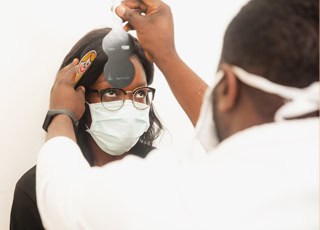Optometry & Low Vision: Comprehensive Eye Care at MICEI
Post in Optometry & Low Vision
0 comment

While routine vision care is essential, optometrists play a vital role in diagnosing and managing various eye conditions, ensuring patients receive the appropriate care for their needs. One critical area of focus is low vision, which can significantly affect daily living. Our aim is to help individuals with low vision maintain independence and quality of life.
What is Optometry?
Optometry is the practice of examining, diagnosing, treating, and managing visual disorders. Optometrists are trained to:- Conduct comprehensive eye exams to detect common refractive errors like nearsightedness, farsightedness, and astigmatism.
- Prescribe corrective lenses (glasses or contact lenses) to improve vision.
- Identify early signs of eye diseases such as glaucoma, cataracts, or macular degeneration.
- Provide pre- and post-operative care for patients undergoing eye surgery, such as LASIK or cataract surgery.
Understanding Low Vision
Low vision refers to a significant visual impairment that cannot be fully corrected with glasses, contact lenses, medication, or surgery. Individuals with low vision often have difficulty performing everyday tasks such as reading, recognizing faces, or navigating their surroundings. The most common causes of low vision include:- Age-Related Macular Degeneration (AMD): Leading to loss of central vision.
- Glaucoma: Damaging the optic nerve and affecting peripheral vision.
- Diabetic Retinopathy: Caused by complications from diabetes, affecting blood vessels in the retina.
- Retinitis Pigmentosa: A genetic disorder affecting night and peripheral vision.
How Optometrists Help Manage Low Vision
At MICEI (Magrabi ICO), our optometrists work closely with patients experiencing low vision to provide personalized care. Here are some ways we help:- Low Vision Aids: Specialized devices, such as magnifying glasses, telescopic lenses, or electronic reading aids, help patients maximize their remaining vision.
- Vision Therapy: Exercises designed to improve visual skills and eye coordination, especially for those with visual impairments that affect daily activities.
- Assistive Technology: Tools like screen readers, voice-activated systems, and enhanced lighting can assist patients with low vision in maintaining independence.
- Counseling and Support: Our optometrists offer guidance on adapting to life with low vision, recommending home modifications and providing support resources for patients and their families.

